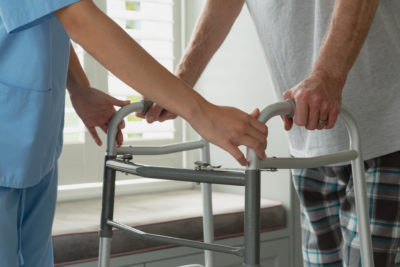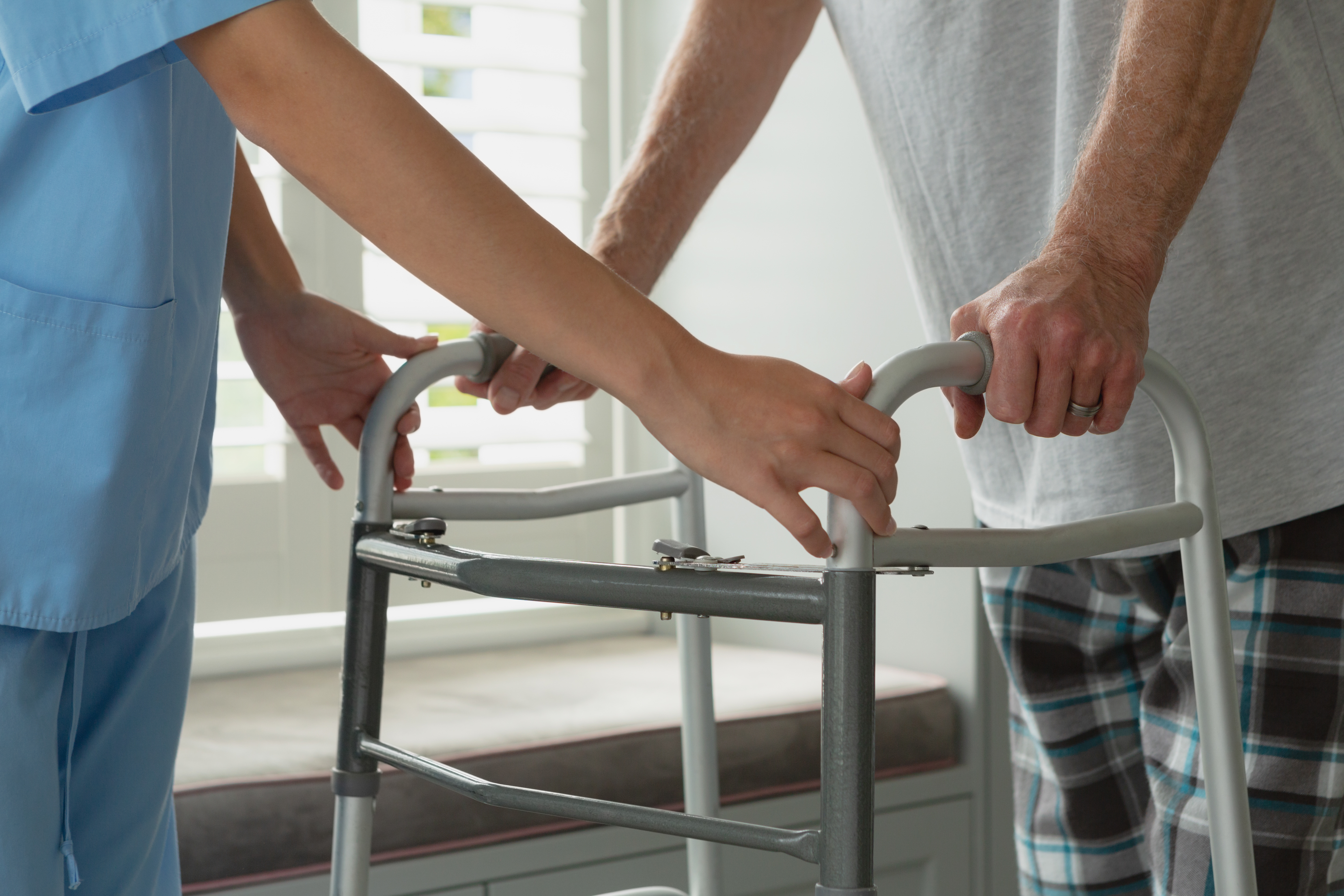 Patients may be apprehensive to have total knee replacement surgery due to fear of missing out on work, family events, and life milestones. So how long should one expect to be in recovery?
Patients may be apprehensive to have total knee replacement surgery due to fear of missing out on work, family events, and life milestones. So how long should one expect to be in recovery?
The answer is probably less time than you think.
First one to two days post surgery
Getting up and moving after surgery is encouraged and a physical therapist will help you sit up and stand soon after you wake up from surgery. Ambulating with an assistive device is encouraged the day of surgery and you will be asked to walk short distances in preparation to return home.
The physical therapist will have you begin range of motion and strengthening exercises as soon as possible as well as instruct you on how to safely move throughout your home.
If it is determined that there is enough support in the home environment, many patients are able to leave the hospital within one to two days. You can expect to be able to dress and bathe yourself, ambulate with an assistive device and be able to bend your knee at least 90 degrees.
First three weeks post surgery
After leaving the hospital, patients with good support are able to return home and continue recovering with a home nurse and physical therapist. Strengthening and ROM exercises continue and you will be able to move around easier and perform more daily activities such as cooking and household tasks.
Patients can often still enjoy social activities with support from friends or family.
Three to six weeks post surgery
During this period it’s not uncommon to begin more advanced physical therapy at an outpatient clinic. You’ll be walking farther distances and preparing to return to your normal everyday activities and work.
Many patients are able to drive when they no longer require strong pain medications, often in the first six-eight weeks. This is also determined if you can comfortably sit in the driving position to safely drive your car, so just make sure to clear it with your surgeon first.
Patients can often return to sedentary jobs during this time, depending on possible modifications and work requirements.
Six to twelve weeks post surgery
Physical therapy advances during this phase as pain decreases and mobility improves. Most patients can expect to return to a normal lifestyle including low-impact activities such as walking, biking and swimming.
Patients with more physical jobs can often return during this time, as they now have more strength, endurance and a functional range of motion at 115-120 degrees.
Three months to a year
As time goes on mobility improves and pain decreases, allowing each patient to meet their post surgical goals.
Every patient is different and requires unique demands to return to a prior level of function. Typically most are able to completely return to normal after three months (and an improved level of function than prior to surgery).


When can you walk upstairs? All my bedrooms are upstairs.